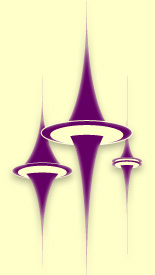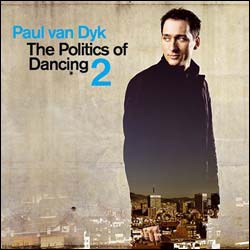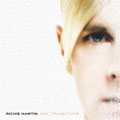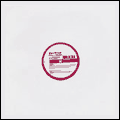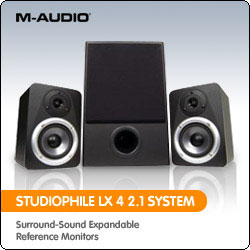|
|
|
|
|
|
|
|
|
|
|
|
|
||||||||||||||||||
 |
|||||||||||||||||||
|
|
|
|
|
November 21, 2005 ../ Sprint Launches Cellular Music ServiceSprint Nextel, has very quietly launched the first legal music download service for cell phones in the United States. The new Sprint Music Store allows customers to download a complete song directly to their cell phone for $2.50 without having to connect their phone to a computer. Usually a service of this nature is hyped with a tremendous marketing campaign. However, Sprint hasn't promoted the service at all, and it isn't even touted on their website's homepage.So why is Sprint treating their new music service like a Jean-Claude Van Damme movie that's gone straight-to-video? Well, because it's downright lame. The first problem is the expense. Each song costs $2.50. But you also have to factor in that you have to purchase a $230 Sanyo MM-9000 or a $250 Samsung SPH-A940 cell phone (prices reflect a rebate if you commit to a two-year service contract), extra MiniSD memory cards to hold your tracks ($25-$150), and extra data transmission costs, about $15-25 dollars per month in addition to your cell phone service charges. Sprint has publicly stated that the $2.50 per song is worth the extra expense for the convenience of instant access. But is a song that you can download from a sloppy cellular network really something you can't wait to go home and score from iTunes? The second problem is the quality. The Sprint Music Store sells very compressed downloads in the AAC+ format. The average size for a song is about 1MB. With the storage that comes standard with the phones mentioned above, that puts only about 30 songs on your phone unless you want to purchase a bigger memory card. For 2.5 times the cost, your buying a track that sounds worse than the web-based iTunes store sells for only 99 cents. The third problem is the network. Although Sprint is running the service on its new high-speed, Power Vision network, nationwide coverage is only in 75 markets, and sometimes not very reliable. How much confidence is the average consumer going to have in being able to download a song when the cellular carriers can't even maintain a call without a drop? The sad truth is that the providers rather spend their money on Catherine Zeta-Jones instead of improving their networks. Finally, the personal use rights of the songs are stricter than their online competitors. You cannot use your downloaded tracks as ringtones (a separate license is needed). You can't simply transfer your songs from your phone to your computer - you have to download them again, and only from a Windows PC, and they won't play on an iPod, the most popular portable music player with over 30 million sold. Currently, the Sprint Music Store has only 250,000 songs for sale from the major labels including, Warner Music Group, EMI, Sony BMG and Universal Music Group, compared to iTunes which offers 2 million. You can peruse the library by downloading a 30 second preview of each track, and when you're ready to purchase and download, it takes only about a minute per song. The charges then show up on your monthly cell phone bill. The store's interface is surprisingly well designed and easy to use. You have a store area for buying and a player area that showcases your purchases. There are several categories to explore including New Releases, Breakthrough Artists, etc., as well as 24 music genres. The only complaint was that scrolling through long lists of artists on the cell phone's tiny screen was exasperating. In no way was a cellular music store going to be a bargain. Between the major labels clamoring for a download price increase, and the cellular companies pile-on-the-extra-charges pricing structure, the consumer's wallet was going to take a beating. The only thing that could have been worse is if a cable company was somehow involved. Sprint, one of the worst cellular companies, does deserve credit for being the first to launch a pure-play cellular music store in the United States. However, the negatives of this service far outweigh the positives, and this is why Sprint is not investing any money to market their version of Timecop. The Future: This smells like a bigger dud than the Motorola ROKR phone. Although, Sprint's Music Store and their Power Vision network is not for the Average Joe, the $2.50 per song cost is still a major slap in the face, and will make for incredibly bad PR. For consumers who actually like Sprint, and don't mind their cellular carrier taking a vacuum to their wallet, upgrading to the Samsung SPH-A940, with its 2 megapixel camera/camcorder, music player and video streamer, is definitely the way to go.
Copyright © 2005 Futuremusic® All Rights Reserved. |
|
|
 As the name correctly implies, Experiments In Sound, is Futuremusic's latest endeavor for pushing electronic music technology to the very edge of what's possible. Experiments In Sound grew out of Futuremusic's avant-garde events in New York City that featured DJ's taking mixing and live sound reinforcement to a whole new level with the very latest gear and software. Now Experiments In Sound has become The Ultimate Mix Contest...
After the tremendous success of our groundbreaking The Next Big Thing DJ Contest, Futuremusic has decided to once again create a new paradigm...
Futuremusic wants to thank everyone who participated in The Next Big Thing 2004. John Digweed, Beatport, Alienware, M-Audio, Native Instruments, IK Multimedia, PVDJ, PK Graphics, Ableton, The DubHouse, Propellerheads, Technics, FreeFloat, The Church, PCDJ and every DJ who entered this year's event thank you. From the sheer number of quality mixes, we can tell you that dance music is thriving in the United States. The amount of outstanding talent and creativity really blew us away, and every DJ who's putting their heart, mind and soul behind the music is a winner. John Digweed has made his decision and the winner is... Think you got skills?? Then start practicing! The Next Big Thing 2005 will kick off at the end of the summer!!
News Archives
|
|
|
|
|
|
|
|
|
|
|
|
|
